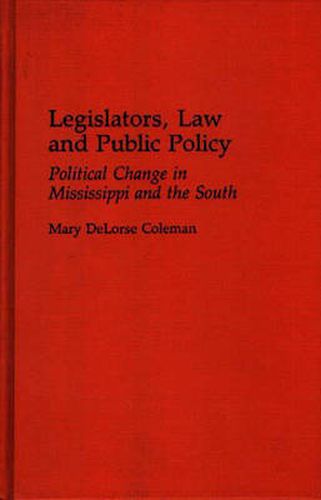Readings Newsletter
Become a Readings Member to make your shopping experience even easier.
Sign in or sign up for free!
You’re not far away from qualifying for FREE standard shipping within Australia
You’ve qualified for FREE standard shipping within Australia
The cart is loading…






This book evaluates Mississippi politics since the pivotal 1978 Connor v. Johnson decision, which replaced multi-member legislative districts with single-member districts. Mary DeLorse Coleman examines how, after an arduous journey through the judicial system, this decision changed the profile of Mississippi politics from its domination by the agrarian elite to its integration by multi-racial representatives. The study issues a challenge to the legislature, formerly a stronghold of white leadership, to foster legislation which will erase racial and class divisions.
The analysis begins with a review of black politics from 1865 to 1986, followed by an in-depth account of the Connor litigation. Attention turns to the subsequent voting actions of the Mississippi legislature and what variables predict member voting. Although Mississippi politics is the book’s primary topic, Coleman demonstrates how it serves as a touchstone from which to view politics throughout the deep South and Black politics in general. A bibliography and general subject index complete the work.
$9.00 standard shipping within Australia
FREE standard shipping within Australia for orders over $100.00
Express & International shipping calculated at checkout
This book evaluates Mississippi politics since the pivotal 1978 Connor v. Johnson decision, which replaced multi-member legislative districts with single-member districts. Mary DeLorse Coleman examines how, after an arduous journey through the judicial system, this decision changed the profile of Mississippi politics from its domination by the agrarian elite to its integration by multi-racial representatives. The study issues a challenge to the legislature, formerly a stronghold of white leadership, to foster legislation which will erase racial and class divisions.
The analysis begins with a review of black politics from 1865 to 1986, followed by an in-depth account of the Connor litigation. Attention turns to the subsequent voting actions of the Mississippi legislature and what variables predict member voting. Although Mississippi politics is the book’s primary topic, Coleman demonstrates how it serves as a touchstone from which to view politics throughout the deep South and Black politics in general. A bibliography and general subject index complete the work.